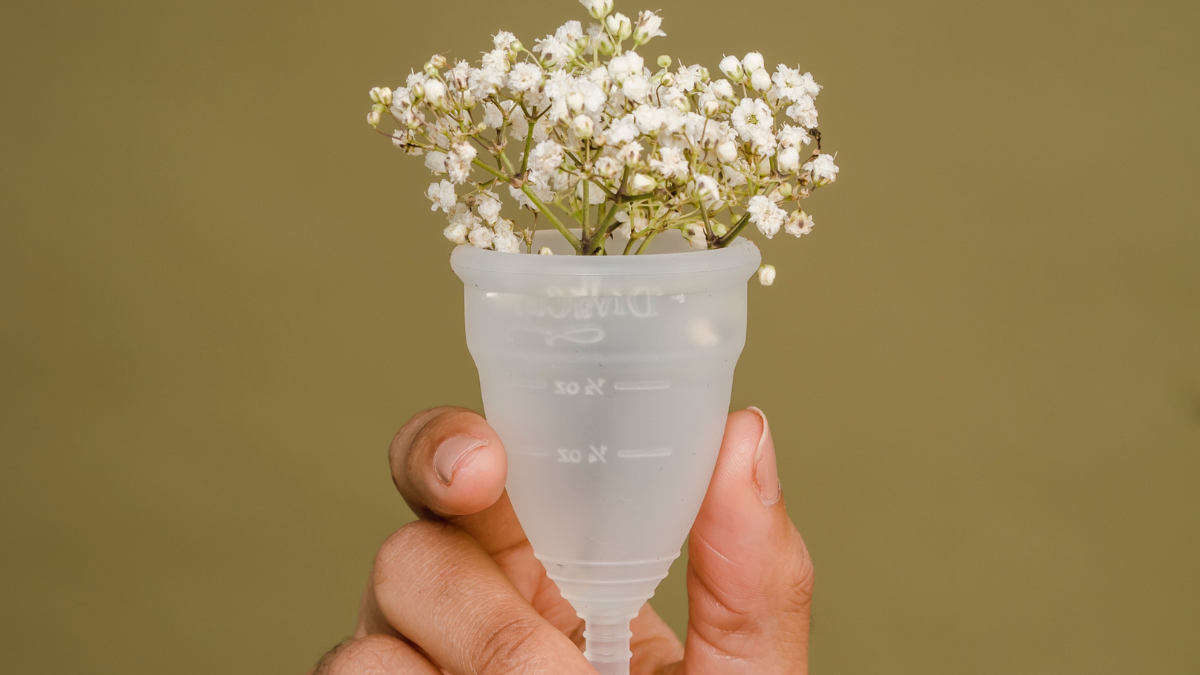For World Menopause Day (18 October 2023) creative agency Dark Horses collaborated with Menopause Mandate to bring this year’s event, A Walk in the Park, to life. Taking place in Kensington Gardens, the inaugural event had a profound mission: to amplify awareness about menopause. Dark Horses creative duo, Ellis McKenzie and Jezebel Carr, provide an insider’s perspective on the day’s events and underscored the importance for women of all ages to proactively engage with this topic.
Crowds rallying together, marching against the wind and rain, seems like the perfect metaphor for the Menopause Mandate
Women carrying on undeterred to stand for a worthy cause. We wanted to meet the people braving the storm and ask them what motivated them to march in the name of menopause. Setting off at the start line in Kensington Gardens we got chatting to Ira Guha, the founder of Asan, a social enterprise that specialises in reusable period products.
Periods are probably not the first thing that spring to mind when we think of menopause — more like that lack thereof. But Ira explained that Asan has experienced huge demand from an unexpected audience: ‘Launching Asan opened my eyes to the experiences of perimenopausal women. When we started out we expected our audience to be mainly teens, but found a lot of people going through perimenopause using menstrual cups.’
Heavy and unexpected periods during perimenopause means that products like menstrual cups can be a lifesaver — especially when you’re at work. Talking to Ira, we agreed that many lessons could be learned from periods when it comes to improving menopause support in the workplace. Menstrual leave, as Ira explained, is a perfect example of this: ‘You don’t have to say “I’m on my period.” It’s just understood that you can either work from home or take those days, without having to give a reason.’
It makes sense to have menstrual leave in place at work, so why not the same with menopause? Offering leave is a great way to provide sanctum, away from the workplace, for people experiencing menopause and perimenopause symptoms. But Ira stressed the importance of being able to talk comfortably about menopause in the workplace, without embarrassment: ‘Words like smear test, menopause, PMS, periods… They should be so normal that it’s just like, “I just went to like, get a coffee,” you know?’
Which is our cue to big up our CEO, Melissa Robertson. She openly talks about menopause in the workplace, and it instantly normalises a potentially taboo and scary subject. Even something as simple as stopping mid sentence and casually announcing, ‘sorry guys — brain fog,’ helps to educate people in a way that they all understand. Listen, brain farts, we’ve all been there.
Educating people is the first step to improving menopause support and raising awareness, but it goes beyond the workplace
Speaking to Carolyn Harris, the MP for Swansea East, Deputy Leader of the Welsh Labour party and total legend. She spoke to us about the importance of educating health professionals: ‘Doctors haven’t been trained adequately about menopause. And that mismatch means that women are being diagnosed with all sorts of weird and wonderful conditions when in reality, it’s the menopause. The biggest problem that we’re finding is that women don’t know what menopause is. They don’t know what they’re experiencing.’
At the finish line, we met a group of women who took the menopause experience to a whole new level: getting men to experience symptoms for themselves, thanks to a device called the MenoVest. The vest was developed by Over The Bloody Moon, a group that provides advice on menopause to companies and individuals, and is funded by Theramex, one of the largest manufacturers of HRT products in the UK.
Following this revelation we spoke to Toame Jennings, a communications consultant, working with Carolyn Harris taking the MenoVest to Westminster. MPs Iain Duncan Smith and Wes Streeting each wore a MenoVest in parliament, and experienced intense hot flushes, one of the most common symptoms suffered during menopause.
Taome told us her workplace updated their existing menopause policy, as a result of working with Theramex and becoming more informed on the topic. She spoke of the appetite and willingness to learn, not just from younger women such as herself, but across all ages. However, Taome acknowledged that there are still hurdles to overcome: ‘There always seems to be shame around women’s health, and that’s sad. The discourse around women’s health in general needs to change, and menopause is part of that.’
This was something echoed by Carolyn, who told us about her own experience years ago that sticks in her mind. She was sent out of the room by her mother, who was discussing the menopause with her friends: ‘But Mum,’ she protested, ‘I’m 37!’
It was becoming increasingly clear: talking to each other and spreading the word is the best solution
Not only to educate, but to break down the stigma and embarrassment surrounding menopause. Carolyn explained to us, the majority of women turn to social media to get clued up on menopause, making it a source of education, because healthcare is lagging behind. The importance of having an online space to talk about menopause should not be overlooked, but for us one of the biggest takeaways from the event was the importance of intergenerational communication and opening up the dialogue between people of all ages.
As Carolyn summed up, ‘We’re doing this to make it better for our daughters, to give them a better experience than we had.’
Featured image: Sora Shimazaki / Pexels

